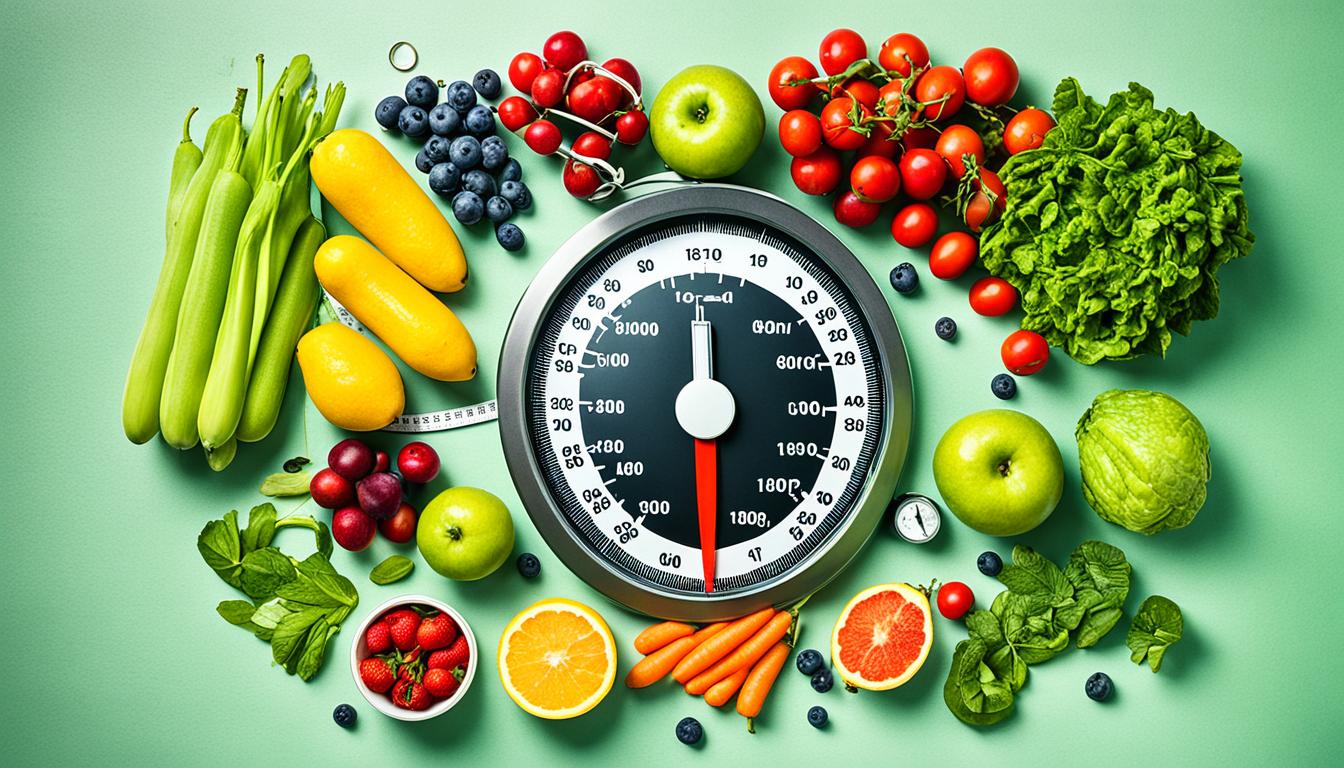Achieving a healthy weight is a journey that many individuals embark on, driven by a desire to improve their overall well-being, boost confidence, and reduce the risk of various health complications. In this comprehensive article, we will explore the most effective and proven ways to lose weight safely and sustainably. We will delve into the fundamentals of weight loss, discuss best practices for adopting a balanced diet and exercise routine, and provide strategies for building healthy habits and overcoming common challenges. By the end of this guide, you will have a holistic understanding of the best approaches to achieve your weight loss goals and maintain a healthy lifestyle.
Key Takeaways
- Understand the importance of a calorie deficit and the role of metabolism in weight management.
- Adopt a balanced and nutritious diet, incorporating regular physical activity, and practice mindful portion control.
- Build sustainable healthy habits and address emotional eating and cravings for long-term weight loss success.
- Explore popular diet plans and integrate both cardio and strength training into your exercise routine.
- Develop a positive mindset, set realistic goals, and leverage support systems to stay motivated and accountable.
Understanding the Fundamentals of Weight Loss
To effectively lose weight and maintain a healthy lifestyle, it’s crucial to understand the fundamental principles of weight management. At the core of successful weight loss lies the concept of a calorie deficit, where we consume fewer calories than our body burns. This calorie deficit triggers our body to tap into its fat reserves, leading to gradual weight loss. Additionally, our metabolism, the process by which our body converts food into energy, plays a significant role in weight management.
Calorie Deficit: The Cornerstone of Weight Loss
The key to achieving sustainable weight loss is creating a calorie deficit. By consuming fewer calories than our body requires, we can force our body to use its stored fat as an energy source, resulting in weight loss. This can be accomplished through a combination of dietary changes, such as reducing portion sizes, choosing nutrient-dense foods, and limiting the intake of empty calories from processed and high-fat foods.
The Role of Metabolism in Weight Management
Our metabolism, the rate at which our body burns calories, is a crucial factor in weight management. Factors such as age, gender, muscle mass, and hormonal balance can all impact our metabolism. By understanding the role of metabolism and taking steps to boost it, such as engaging in regular physical activity and building muscle mass, we can enhance our body’s ability to burn calories and support our weight loss efforts.
Best Ways to Lose Weight Safely and Effectively
To lose weight safely and effectively, we must focus on three key elements: a balanced and nutritious diet, regular physical activity, and mindful portion control. By adopting these strategies, we can create a sustainable approach to weight loss that supports our overall health and well-being.
Adopt a Balanced and Nutritious Diet
Achieving a healthy weight starts with a diet rich in whole, nutrient-dense foods. By consuming a balanced diet that includes a variety of fruits, vegetables, lean proteins, and complex carbohydrates, we can create a calorie deficit while ensuring our bodies receive the essential nutrients they need. This approach not only supports weight loss but also promotes overall wellness, providing us with the energy and vitality to sustain our healthy lifestyle.
Incorporate Regular Physical Activity
Incorporating regular physical activity into our routine is a crucial component of effective and sustainable weight loss. A combination of cardiovascular exercises, such as brisk walking, jogging, or swimming, and strength-training workouts can help us burn calories, boost our metabolism, and build lean muscle mass. By engaging in a well-rounded exercise regimen, we can maximize the benefits of physical activity for weight loss and overall health.
Manage Portion Sizes and Mindful Eating
In addition to a balanced diet and regular exercise, being mindful of our portion sizes and eating habits can significantly contribute to weight loss success. By practicing portion control and cultivating a more mindful approach to eating, we can better regulate our calorie intake and make sustainable changes to our lifestyle. This may involve using smaller plates, slowing down our pace of eating, and paying attention to the signals of hunger and fullness.
By focusing on these three key elements – a balanced and nutritious diet, regular physical activity, and mindful portion control – we can lose weight safely and effectively, setting the stage for long-term success and a healthier, more vibrant lifestyle.
Strategies for Sustainable Weight Loss
Achieving sustainable weight loss is not just about quick fixes, but about adopting a lifestyle that supports long-term success. By focusing on building healthy habits and addressing common challenges, we can create a strong foundation for reaching and maintaining our weight loss goals.
Building Healthy Habits for the Long Run
One of the keys to sustainable weight loss is developing a consistent routine of healthy habits. This may include meal planning, regular exercise, and effective stress management. By incorporating these habits into our daily lives, we can establish a lifestyle that supports our weight loss efforts and helps us maintain a healthy weight for years to come.
Overcoming Emotional Eating and Cravings
Emotional eating and food cravings can be significant obstacles on our weight loss journey. To overcome these challenges, it’s crucial to explore the underlying reasons behind our emotional attachment to food and develop strategies to manage our triggers. This may involve practicing mindful eating, finding healthy alternatives to satisfy cravings, and addressing the emotional or stress-related factors that contribute to unhealthy eating habits.
By focusing on sustainable weight loss strategies, such as building healthy habits and addressing emotional eating, we can achieve our goals and maintain a healthy weight long-term. Remember, successful weight loss is not just about temporary changes, but about adopting a lifestyle that supports our overall well-being. For more information and personalized guidance, visit capturediet.com.
The Best Ways to Lose Weight Through Diet
When it comes to weight loss, diet plays a pivotal role. Understanding the best approaches to dieting can be instrumental in achieving our [best ways to lose weight] goals. Let’s explore the pros and cons of low-calorie diets and dive into some popular diet plans that can support our [weight loss tips] journey.
Low-Calorie Diets: Pros and Cons
Low-calorie diets can be an effective way to create a [healthy weight loss] calorie deficit and kickstart weight loss. By significantly reducing our daily calorie intake, we can trigger the body to burn stored fat for energy. However, it’s crucial to approach low-calorie diets with caution and ensure they are implemented [effective weight loss methods] safely and sustainably.
The pros of low-calorie diets include rapid weight loss, increased [diet and exercise for weight loss] feelings of satiety, and the potential to reset our metabolic rate. On the flip side, the cons include the risk of nutrient deficiencies, decreased energy levels, and the challenge of maintaining the diet [sustainable weight loss strategies] long-term.
Exploring Popular Diet Plans
Beyond low-calorie diets, there are a variety of popular [science-backed weight loss techniques] diet plans that have gained recognition for their [safe and healthy weight loss] potential to support weight loss. Some of the most well-known include the Mediterranean diet, the DASH diet, and the Paleo diet.
The Mediterranean diet, known for its emphasis on [long-term weight loss solutions] whole, plant-based foods, has been associated with numerous health benefits, including [natural weight loss approaches] improved heart health and better weight management. The DASH diet, designed to lower blood pressure, also promotes [capturediet.com] the consumption of nutrient-dense foods and can be an effective [weight loss tips] approach for weight loss.
| Diet Plan | Key Principles | Potential Benefits |
|---|---|---|
| Mediterranean Diet | Emphasizes whole, plant-based foods; limited red meat and processed foods | Improved heart health, better weight management, reduced risk of chronic diseases |
| DASH Diet | Focuses on nutrient-dense foods, low in sodium; designed to lower blood pressure | Weight loss, reduced blood pressure, improved heart health |
| Paleo Diet | Promotes the consumption of whole, unprocessed foods; eliminates grains, legumes, and dairy | Weight loss, improved gut health, reduced inflammation |
By exploring these [diet and exercise for weight loss] popular diet plans, we can find an approach that aligns with our [sustainable weight loss strategies] individual preferences and lifestyle, ultimately supporting our [best ways to lose weight] long-term weight loss goals.

Integrating Exercise into Your Weight Loss Journey
In addition to a balanced diet, regular physical activity is essential for successful and sustainable weight loss. Incorporating a combination of cardio exercises and strength training can help us maximize the benefits of exercise for our weight loss goals.
Cardio Exercises for Calorie Burning
Engaging in cardio exercises, such as brisk walking, jogging, or swimming, can help us burn a significant number of calories and improve our overall cardiovascular health. These activities not only support our weight loss efforts but also enhance our endurance and fitness levels, making it easier to maintain a healthy lifestyle.
Strength Training for Muscle Building
Incorporating strength training into our exercise routine can be equally important for weight loss. By building and maintaining muscle mass, we can boost our metabolism, which can help us burn more calories even at rest. Resistance exercises, such as weightlifting or bodyweight exercises, can be highly effective in supporting our weight loss journey and promoting a toned, sculpted physique.
By integrating both cardio and strength training into our routine, we can maximize the benefits of exercise for our weight loss goals, enjoying improved overall health and a sustainable, long-term approach to maintaining a healthy weight.
| Cardio Exercises | Strength Training Exercises |
|---|---|
| Brisk walking | Squats |
| Jogging | Lunges |
| Swimming | Push-ups |
| Cycling | Planks |
| Rowing | Bicep curls |
Remember, the key to a successful weight loss journey is to find a balanced approach that combines a healthy diet with a sustainable exercise routine. By integrating both cardio and strength training into your regimen, you can maximize the benefits of exercise and achieve your weight loss goals in a safe and effective manner.
Mindset and Motivation for Weight Loss Success
Achieving successful and sustainable weight loss requires not only the right strategies, but also the right mindset and motivation. Setting realistic and achievable goals can help us stay focused and track our progress, while also providing a sense of accomplishment. By aligning our weight loss journey with our personal values and long-term aspirations, we can cultivate a positive and determined mindset that will propel us towards our desired outcomes.
Setting Realistic and Achievable Goals
When it comes to weight loss, it’s essential to set goals that are both challenging and realistic. Aiming for gradual, sustainable weight loss of 1-2 pounds per week is generally considered a safe and effective approach. By breaking down our larger weight loss objectives into smaller, manageable milestones, we can celebrate our successes along the way and stay motivated to continue our healthy habits.
Overcoming Obstacles and Staying Motivated
No weight loss journey is without its challenges, and it’s important to have strategies in place to overcome obstacles and maintain our motivation. Setbacks, such as plateaus or temporary weight regain, are common, but they don’t have to derail our progress. Embracing a growth mindset, engaging in positive self-talk, and rewarding ourselves for our efforts can help us stay resilient and focused on our long-term goals.
Additionally, seeking support from friends, family, or a weight loss community can provide the encouragement and accountability we need to stay on track. By surrounding ourselves with a network of individuals who share our weight loss goals and values, we can find the motivation and inspiration to continue our journey towards a healthier, more confident version of ourselves.

Lifestyle Factors that Influence Weight Loss
While diet and exercise are the cornerstones of successful weight loss, there are other crucial lifestyle factors that can have a significant impact on our ability to lose and maintain a healthy weight. Adequate sleep and effective stress management play a vital role in regulating our hormones and supporting our overall well-being, which in turn can influence our appetite and metabolism. Additionally, staying hydrated by drinking enough water can aid in weight loss by promoting feelings of fullness, supporting digestion, and flushing out toxins.
Sleep and Stress Management
Getting enough quality sleep and managing stress levels are often overlooked but essential components of a comprehensive weight loss plan. Insufficient sleep and high-stress levels can disrupt the delicate balance of hormones that regulate our appetite, leading to increased hunger and cravings for unhealthy foods. By prioritizing quality sleep and adopting effective stress management techniques, such as meditation, deep breathing, or engaging in relaxing activities, we can support our overall well-being and create an environment conducive to sustainable weight loss.
Hydration and Water Intake
Staying adequately hydrated by drinking enough water is another crucial factor in weight loss. Water can help promote feelings of fullness, which can curb overeating and snacking. Proper hydration also supports digestion and helps flush out toxins from the body, contributing to a healthier overall metabolism. Aim to drink at least 8 glasses of water per day, and adjust your intake based on your individual needs and activity levels.
| Benefit | Sleep and Stress Management | Hydration and Water Intake |
|---|---|---|
| Hormone Regulation | Helps regulate hormones like cortisol and leptin, which can impact appetite and metabolism. | Supports the body’s natural detoxification processes and helps maintain a healthy balance of fluids and electrolytes. |
| Appetite and Cravings | Can reduce hunger and cravings for unhealthy foods, which can contribute to overeating. | Promotes feelings of fullness and can curb the urge to snack or overindulge. |
| Metabolism and Energy | Supports overall well-being and can help boost energy levels, which can improve physical activity and weight loss efforts. | Aids in digestion and nutrient absorption, which can positively impact metabolism and energy levels. |
The Role of Support Systems and Accountability
Embarking on a weight loss journey can be a challenging and often isolating experience. However, having a strong support system and a sense of accountability can be tremendously beneficial. Connecting with friends, family, or a weight loss community can provide encouragement, motivation, and practical advice to help us stay on track. Additionally, enlisting the help of a healthcare professional, such as a registered dietitian or a personal trainer, can offer specialized guidance and accountability to ensure we are following a safe and effective plan.
By tapping into support systems and maintaining a sense of accountability, we can increase our chances of achieving sustainable weight loss and maintaining a healthy lifestyle in the long run. The support and accountability we receive can help us overcome common obstacles, stay motivated, and make healthy choices that align with our weight loss goals. Whether it’s through a virtual weight loss community, a fitness challenge with friends, or regular check-ins with a health professional, the power of support and accountability can be a game-changer in our weight loss journey.
Conclusion: Embracing a Holistic Approach to Weight Loss
In our journey towards achieving the best ways to lose weight, we’ve explored a comprehensive approach that addresses various aspects of our lifestyle. By understanding the fundamental principles of weight loss, such as the role of calorie deficit and metabolism, we’ve laid the groundwork for making informed decisions.
Adopting a balanced and nutritious diet, incorporating regular physical activity, and managing our portion sizes and eating habits have proven to be effective weight loss methods. Additionally, we’ve learned the importance of building sustainable habits, overcoming emotional eating and cravings, and maintaining a positive mindset and motivation throughout our weight loss journey.
Recognizing the influence of other lifestyle factors, such as sleep, stress management, and hydration, has further strengthened our understanding of the holistic approach to weight loss. Lastly, the role of support systems and accountability has emerged as a crucial element in ensuring our long-term success and the ability to maintain a healthy weight.
Remember, the best ways to lose weight involve a personalized and comprehensive approach that considers our individual needs, preferences, and lifestyle. By embracing this holistic perspective, we can set ourselves up for safe, healthy, and long-lasting weight loss success. Let’s continue our journey towards a healthier and more confident version of ourselves. For more information, please visit capturediet.com.

